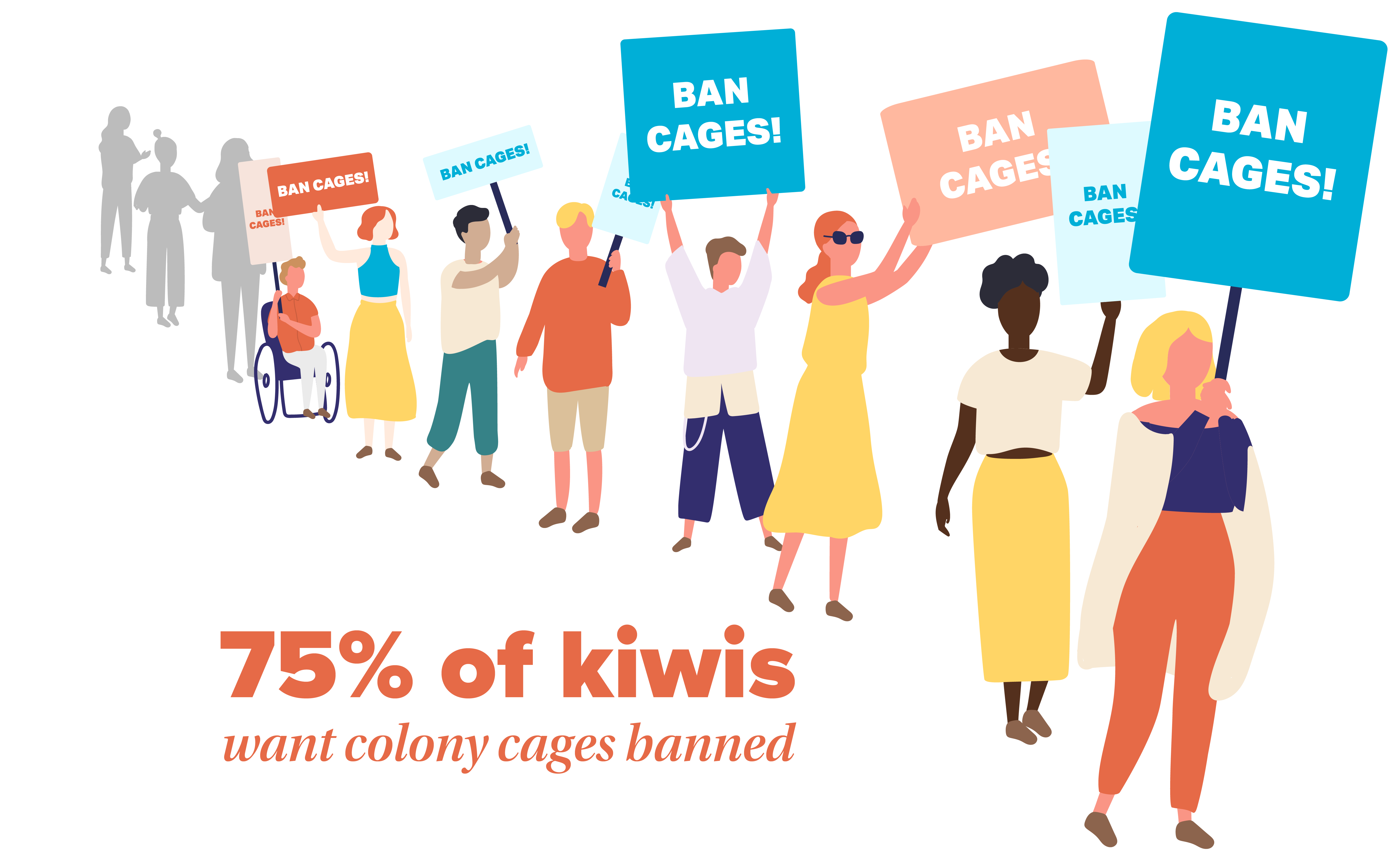Overcrowded conditions and the inability to carry out natural behaviours in cages can cause hens to experience high levels of anxiety, stress, boredom, and fear. This can lead to aggressive behaviours like pecking, feather pulling, cannibalism and death. Submissive, sick or injured hens have nowhere in the cage to hide from aggressive hens and will endure pain, fear and injuries without intervention.
The physical health of hens in cages is typically poor. Disease, parasites, severe feather
loss and brittle bones (weakened from lack of movement) are just some of the ailments that characterise the health of caged hens. The crowded and unsanitary conditions inside colony cages exacerbate the risk of the hens developing respiratory and eye health problems due to high levels of ammonia and faecal dust.
Due to selective breeding, a commercially farmed hens will lay around 300 eggs per year, a substantial increase from the 12 to 20 laid by her wild counterpart. High levels of calcium are required for this continuous egg production, which increases the likelihood of bone fragility and osteoporosis in intensively farmed hens. In some cases, calcium deficiency and structural bone loss can lead to cage layer fatigue – a syndrome characterised by spontaneous fractures, exposure of the spinal cord and paralysis. These bone conditions are determined by the extent to which a hen can move and exercise. If hens affected by cage layer fatigue are not allowed to walk freely, they will likely die from dehydration and starvation.
The design of colony cages and the way in which hens are handled play an important role in the welfare of hens. Hens’ feet can become easily trapped in the wire mesh of cages, making them more susceptible to injury and foot disorders such as bumblefoot and overgrown claws. The lack of abrasive substrates that would naturally keep claws short, alongside poor hygiene and perch materials, exacerbate this risk.
Hens can also incur significant levels of trauma and bone breakage from rough handling. With the already fragile bone condition of caged hens, the pain associated with this level of physical damage is likely to be severe.

